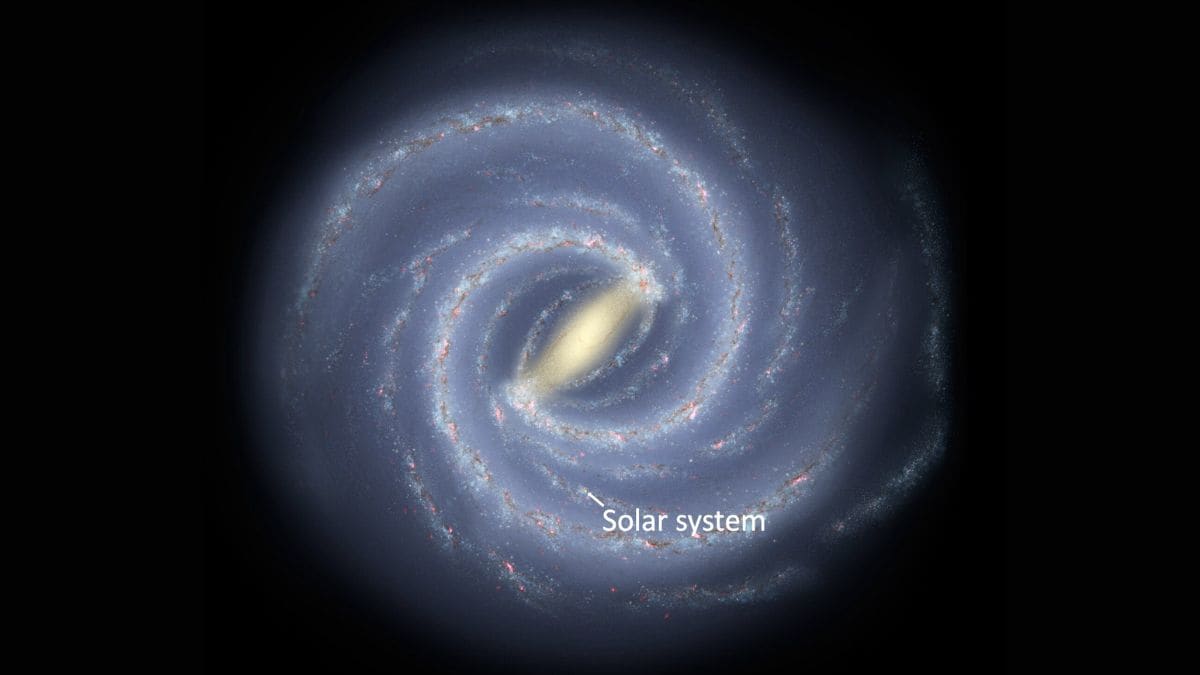The movement of the solar system through the Orion star-forming complex around 14 million years ago may have influenced Earth’s climate, according to scientists. This dense region of space, part of the Radcliffe Wave galactic structure, could have compressed the heliosphere—the protective shield surrounding the solar system—while increasing interstellar dust reaching Earth. Researchers suggest that this influx of cosmic dust might have left traces in geological records, potentially linking galactic activity to past climate changes.
Solar System’s Passage Through the Radcliffe Wave
According to the study published in Astronomy & Astrophysics, an international research team led by the University of Vienna used data from the European Space Agency’s Gaia mission and spectroscopic observations to determine that the solar system moved through the Radcliffe Wave in the Orion constellation between 18.2 and 11.5 million years ago. The most probable period was estimated between 14.8 and 12.4 million years ago. João Alves, Professor of Astrophysics at the University of Vienna and co-author of the study, stated to Phys.org, that this research builds on prior findings regarding the Radcliffe Wave. This structure, made up of interconnected star-forming regions, includes the Orion complex, which the sun is believed to have passed through.
Potential Impact on Earth’s Climate
The study suggests that the increased presence of interstellar dust may have influenced Earth’s atmosphere. Efrem Maconi, lead author and doctoral student at the University of Vienna, said that this dust might have contained traces of radioactive elements from supernovae, which could be detected in geological records using advanced technology in the future.
The solar system’s passage aligns with the Middle Miocene Climate Transition, a period marked by a shift from a warmer, variable climate to a cooler one, leading to the development of Antarctic ice sheets. Scientists highlight that while interstellar dust could have played a role, the dominant factor in this climate change was a long-term decrease in atmospheric carbon dioxide levels.
Not Comparable to Human-Induced Climate Change
Maconi noted that while interstellar dust could have contributed to past climate shifts, the amount required for significant change would need to be much greater than current data suggests. The Middle Miocene Climate Transition unfolded over hundreds of thousands of years, unlike modern climate change, which is occurring rapidly due to human activities
For details of the latest launches and news from Samsung, Xiaomi, Realme, OnePlus, Oppo and other companies at the Mobile World Congress in Barcelona, visit our MWC 2025 hub.
#Solar #Systems #Journey #Orion #Complex #Altered #Earths #Climate
solar system’s passage through orion complex may have affected earths climate 14 million years ago solar system,orion complex,earth climate,radcliffe wave,astronomy,space science,interstellar dust,milky way,climate change,gaia mission
latest news today, news today, breaking news, latest news today, english news, internet news, top news, oxbig, oxbig news, oxbig news network, oxbig news today, news by oxbig, oxbig media, oxbig network, oxbig news media
HINDI NEWS
News Source

